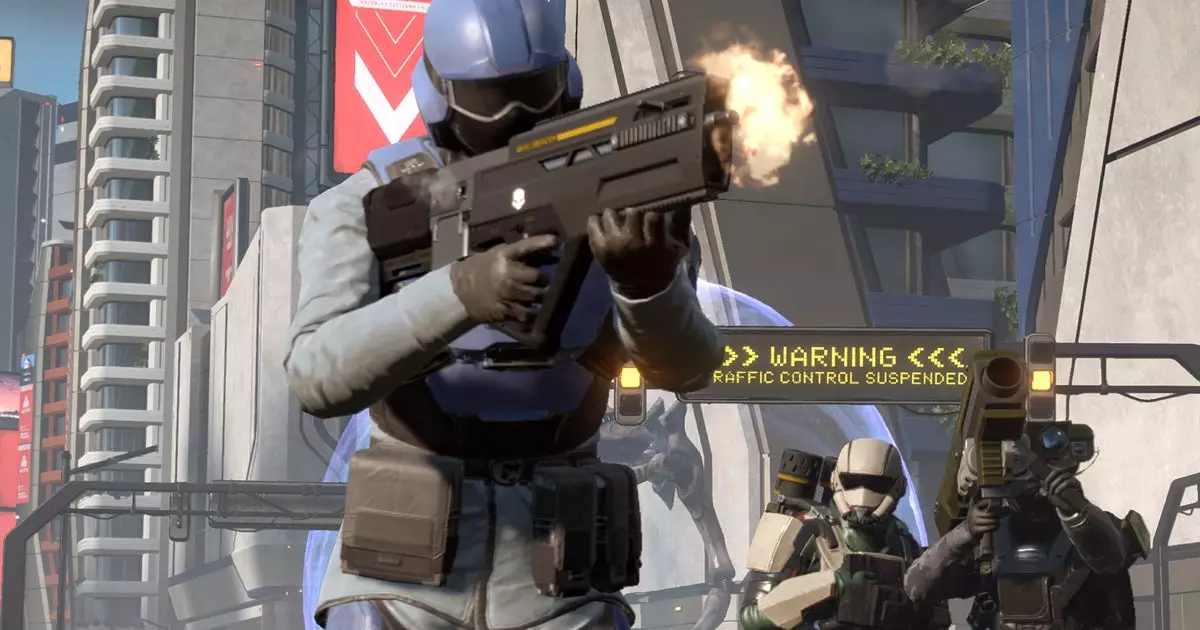The recent finale to the “Heart of Democracy” update in *Helldivers 2* has become a microcosm of community dynamics, showcasing an epic struggle against the Illuminate invaders. The game, set in a dystopian future, allows players to cooperate across continents to fend off threats to their home planet, known as Super Earth. This collaborative effort culminated in the successful defense of Equality-On-Sea, a fictional city intertwined within the gaming universe’s depiction of China. The resonance of this victory has transcended gaming forums, making headlines in local news outlets such as Kanka News’s *Good Morning Shanghai*, where anchors documented the victory with pride. They celebrated both Chinese and international gamers who came together in a united front, reflecting an optimism that many might argue is essential in today’s fragmented digital world.
The Power of Localization and Cultural Sentiments
However, this extraordinary collaboration was not without its hurdles. The controversy surrounding the defense of Equality-On-Sea has brought to light the complex relationship between localization, cultural significance, and player expectations. The city’s real-world geographical tie to Shanghai may have intensified the involvement of Chinese players, who viewed the fight for its control as a matter of cultural representation and national pride. Their fervor to secure the city was hampered by a frustrating gameplay mechanic—namely, the inability to push a defense percentage gauge to 100%. They were led to believe that they could achieve total control over the city, a misunderstanding that, according to community members, stemmed from a botched translation in the game’s Chinese version.
A Case Study in Player Agency
The feelings of disenchantment among players were amplified by a sense of betrayal. Many felt their contributions were overshadowed by the ongoing invasion, leading to accusations that developer Arrowhead had effectively constrained their agency. The meticulously crafted narrative, while engaging, seemed to inadvertently foster resignation among players, who believed that their in-game actions were limited to scripted outcomes. This dilemma opens up broader discussions about player agency within game mechanics. In massively multiplayer environments, players expect a degree of influence over the game’s evolution, and when they feel disregarded, it can lead to actions like review bombing. Such backlash reflects not just individual frustration but a collective cry for recognition and impact within the gaming ecosystem.
The Broader Implications
The experience surrounding *Helldivers 2* serves as an intriguing case study in how games can act as vehicles for cultural exchange and unity, while also revealing the pitfalls of player engagement when expectations are misaligned. While the victory may be celebrated, it also raises questions about the responsibilities of developers to ensure that all players feel equally represented and effective within their games. The dialogue generated within the community amid this controversy holds potential lessons for future game design, emphasizing the importance of clear communication and cultural nuances that shape players’ interactions with virtual worlds. Despite the tensions that emerged, the synthesis of efforts between Chinese and American players illustrates that even in the realm of digital warfare, camaraderie and collective effort can occasionally shine through, proving that the biggest battles often reside beyond the screen.

